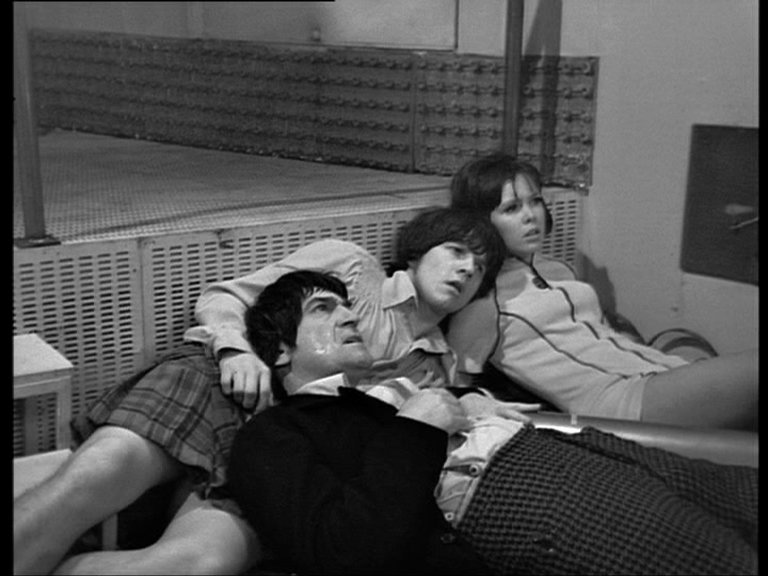 |
| Is it a Police Box or is it...the Tardis? |
On that date, a little after quarter-past-five in the afternoon, William Hartnell made his debut as the mysterious (and rather grumpy) Dr Who. The early serials focused around his granddaughter, Susan Foreman (played by Carole Ann Ford) and her teachers, Barbara Wright (Jacqueline Hill) and Ian Chesterton (William Russell) who had inadvertently got themselves caught up in the Doctor's adventures.
The BBC launched the series as an educational tool - to guide children toward learning more about science and history. Older "children" came to love Bill Hartnell's irascibility and his habit of trying to cover momentary lapses in memory by shouting "Chesterton!" as though William Russell's character needed constant warning of imminent danger.
An extract from the first serial "An Unearthly Child".
Amazingly, the most significant moment in the history of Dr Who might not have happened had the Beeb had more stories at their disposal. Serial Two was ready to run and the only completed script was "The Mutants" written by Terry Nation. The use of "bug-eyed monsters" had been strictly prohibited by commissioner, Sydney Newman, but, left with no fallback scripts they were obliged to allow Nation's Daleks to air on 21st December 1963.
Due to poor storage and the BBC's policy of wiping or recording over old tapes (no longer the practice), many of the early shows have been lost. Included among these missing gems is part four of 1966's serial Tenth Planet, in which the first Doctor (Hartnell) "regenerates" into Doctor number two (Patrick Troughton).
Regeneration turned out to be a stroke of genius and a vital element in the programme's enduring success. Each new Doctor can bring his own slant, his own unique imprint to the character. How different is the current Doctor, played by Matt Smith from William Hartnell's original (and not just in terms of age - Smith took on the role aged 27, Hartnell was 55).
The Doctor is a Gallifreyan Sherlock Holmes - not quite one of us, but knowledgeable, ingenious, resourceful and fearless. With incorruptible moral fibre, whatever villains threaten, he will stand up to them and outwit them in the end.
 |
| Doctor's assistants Jamie McCrimmon (Frazer Hines) and Zoe Heriot (Wendy Padbury) compete for shortest skirt. There have, so far, been eleven TV Doctors - which one is your favourite? |





No comments:
Post a Comment